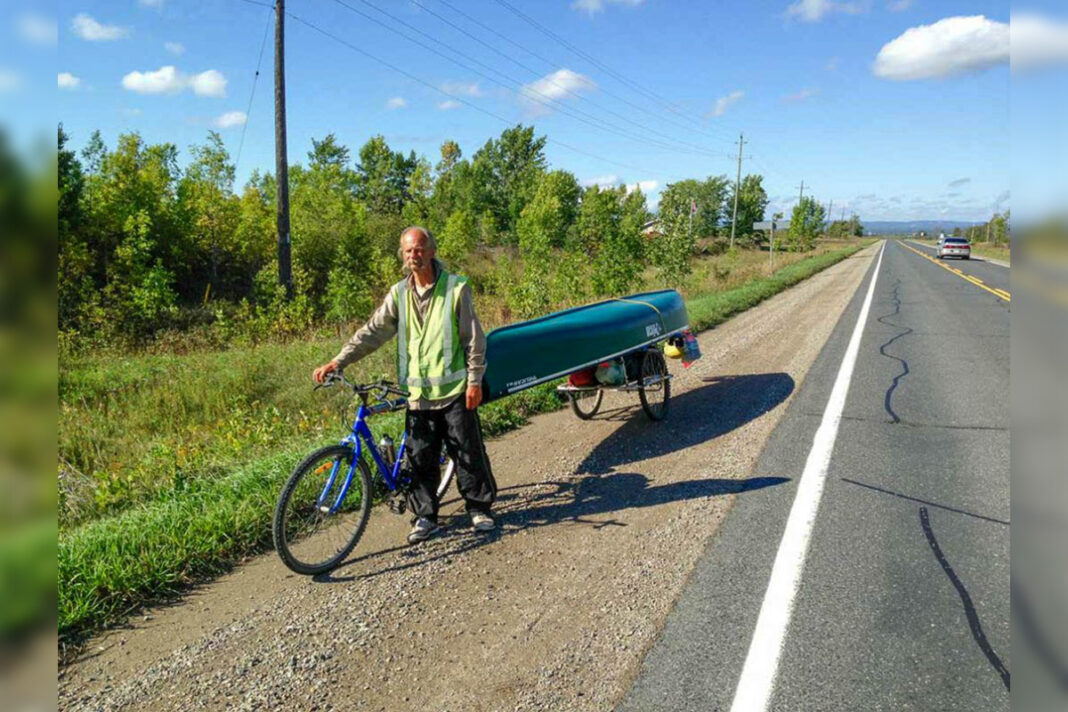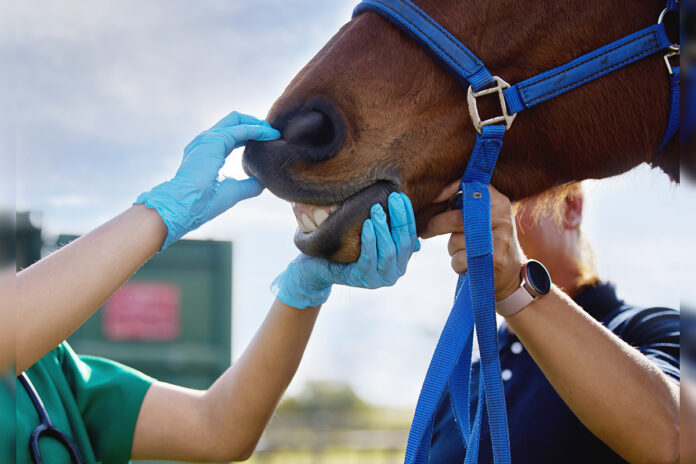Garnet Michael Nelson identified eight years after Expositor interview
MANITOULIN—It was long suspected but finally confirmed thanks to DNA and genealogy research; the body of a man that washed ashore in Lake Huron was the same man interviewed in a 2016 story in The Expositor. His last words to this newspaper were chilling when taken in retrospect.
It was early fall in 2016 when then-Expositor publisher Rick McCutcheon was driving down Highway 6 en route to Sheguiandah when he spotted a very unusual site—a man on a bicycle towing a 15-foot canoe.
“I thought to myself ‘that’s a story’,” recalled Mr. McCutcheon. “So, I turned around and interrupted his journey—he was a bit impatient, a man on a mission. It was probably the last photograph taken of him.”
A few weeks later the body of the man who called himself Mitchell Nelson during the interview was found washed up the shore Lake Huron. Police at the time suspected the body belonged to the man interviewed by media during his long journey from Alberta and they distributed photographs taken of the canoe-hauling cyclist but to no avail. It was not until eight years later that police, using a technique they call Investigative Genetic Genealogy, were able to identify the real name of the homeless man.
In July 2024 Toronto police were able to confirm the man’s identity.
He was Garnet Michael Nelson. “He was 56 years old at the time of his death and investigators have confirmed that he is the same man that was interviewed in September 2016,” notes a release issued by the OPP.
The investigation was assisted by Huron County OPP Crime Unit, OPP Forensic Identification Services, Victim Services, the Office of the Chief Coroner and the Ontario Forensic Pathology Service.
Police had submitted a DNA sample to a national registry and the subsequent relative match helped bring closure to a story that began on Canada Day in Edmonton.
“Mr. Nelson said he’d put his canoe (another one, not the green one he was presently towing) and had launched his bike and camping gear into the North Saskatchewan River in Edmonton on Canada Day, ‘after I’d seen the holiday fireworks’,” recalled Mr. McCutcheon. “He said he’d been living in Alberta for about eight years.”
That first journey took him easterly to North Battleford, Saskatchewan after that, he put his canoe on a bicycle trailer and set out across Saskatchewan and Manitoba. He lost his first canoe near Thunder Bay, purchasing a new one before setting out to continue his journey to Red Rock, Ontario. There he set his canoe into the waters of Lake Superior and paddled to Terrace Bay before taking to the road once more—sometimes being forced to walk his bike and its entourage up steep and lengthy hills, reported Mr. McCutcheon.
When Mr. McCutcheon caught up with him he was on his way to South Baymouth to catch the Chi-Cheemaun ferry to Tobermory where he planned to paddle down Lake Huron to Grand Bend and then cycle to London. He told Mr. McCutcheon he had friends and family in that city. He would then take stock and “decide what I’m going to do next.”
“This trip was a good idea, wasn’t it?” Mr. McCutcheon asked the paddling cyclist. His response foreshadowed the future.
“Was it?” Mr. Nelson responded, before setting out on what a few weeks later would prove to be his last.





